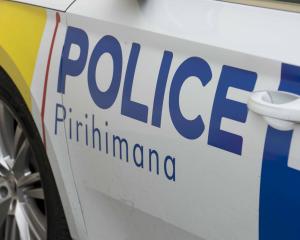Vehicle Inspection New Zealand branch manager Neville Peters, of Dunedin, said the centre, in a busy year, tested up to 50 caravans before the Christmas holiday season, but fewer presented for certification had been declined this year.
"It could be the financial situation, but there's not really a rush on caravans and boat trailer-wise."Caravans mostly failed warrants of fitness for having faulty wheel bearings which bind up because of lack of use as lubricant solidifies.
Faulty indicator lights were the next most common cause of warrant failures, he said.
"The lack of use for over-riding brakes can also be an issue. These things are not expensive to fix, but if a wheel bearing goes the caravan can lose a wheel. And that's a real problem for oncoming traffic - a pneumatic tyre and wheel can bounce all over the road and the caravan becomes very difficult to control."
Fully functional brakes were also a "big deal" on motorhomes which did not travel far annually.
Mr Peters said wheel bearings on boat trailers were especially prone to seizing.
"They trap moisture when they sit for long periods, then they travel between A and Z and heat up. When they are backed into water, the heat draws water into the bearings."
Checking tow couplings were the correct sizes was also important.
"We have seen some which are very loose, which is not advisable. The coupling and [tow] balls wear depending on the conditions they are used in.
"It's wheels and lights in that order. But, once or twice a year, we get caravans which are mechanically dangerous.
"But they are usually rescued before they get that far."
Mine geologist Andy Winneke, of Dunedin, has owned his caravan for 18 months. He likes the 1974 Sprite's "retro" look and owning a small caravan means they did not need a large tow vehicle.
After sitting for a year, he found the "10ft 6in" caravan needed attention: "It sat under a tree all year and when I was jacking both wheels up to give them spin before getting a warrant I found a [wheel] bearing had seized."
He describes his maintenance regime as "precautionary", apart from the inconvenience of a breakdown on holiday, checking brakes and bearings might save on long-term maintenance.
Mr Winneke believes caravans are a step up from tents for parents with young children.
"It's [appeal] is its convenience, especially with a young family. Pitching a small tent in inclement weather is not conducive to happy morale on the family adventure . . . and when you have a screaming, hungry child it can test the relationship.
"You know your bed and shelter is OK. It keeps things civilised. And there's more time for fishing."
The small caravan can "squeeze into small lay-bys" or be backed in next to a stream.
It can be towed at between 80kmh and 90kmh, and other drivers are are generally courteous and considerate.
"Maybe they are a little bit sympathetic given age of the van".
New Zealand Transport Agency statistics show 28,858 trailer caravans and 20,505 motorcaravans were licensed for road use in 2008.
Safety checks
AA technical advice manager Jack Biddle, of Auckland, said before travelling, caravan owners should check. -
•Current warrant of fitness and electrical warrant for caravan wiring. Electrical warrants can be supplied by any electrician.
•There is an inflated spare wheel with good tread; a working jack and brace.
•The tyre pressures are good; they can drop to dangerous levels as vehicles sit unused.
•Wheel bearings and brakes are not binding.
•Gas bottle certificate has not expired.
•Fire extinguishers are charged.
•Towing vehicle's tow-bar is securely attached.
•Tow vehicle coupling is compatible with caravan or trailer. Common sizes are 1-inch and 50mm tow balls and must be correctly matched. They require a safety chain.
•Cars and caravans are not overloaded, contents are evenly spread and secure so loads in tow vehicle and caravan cannot shift.











